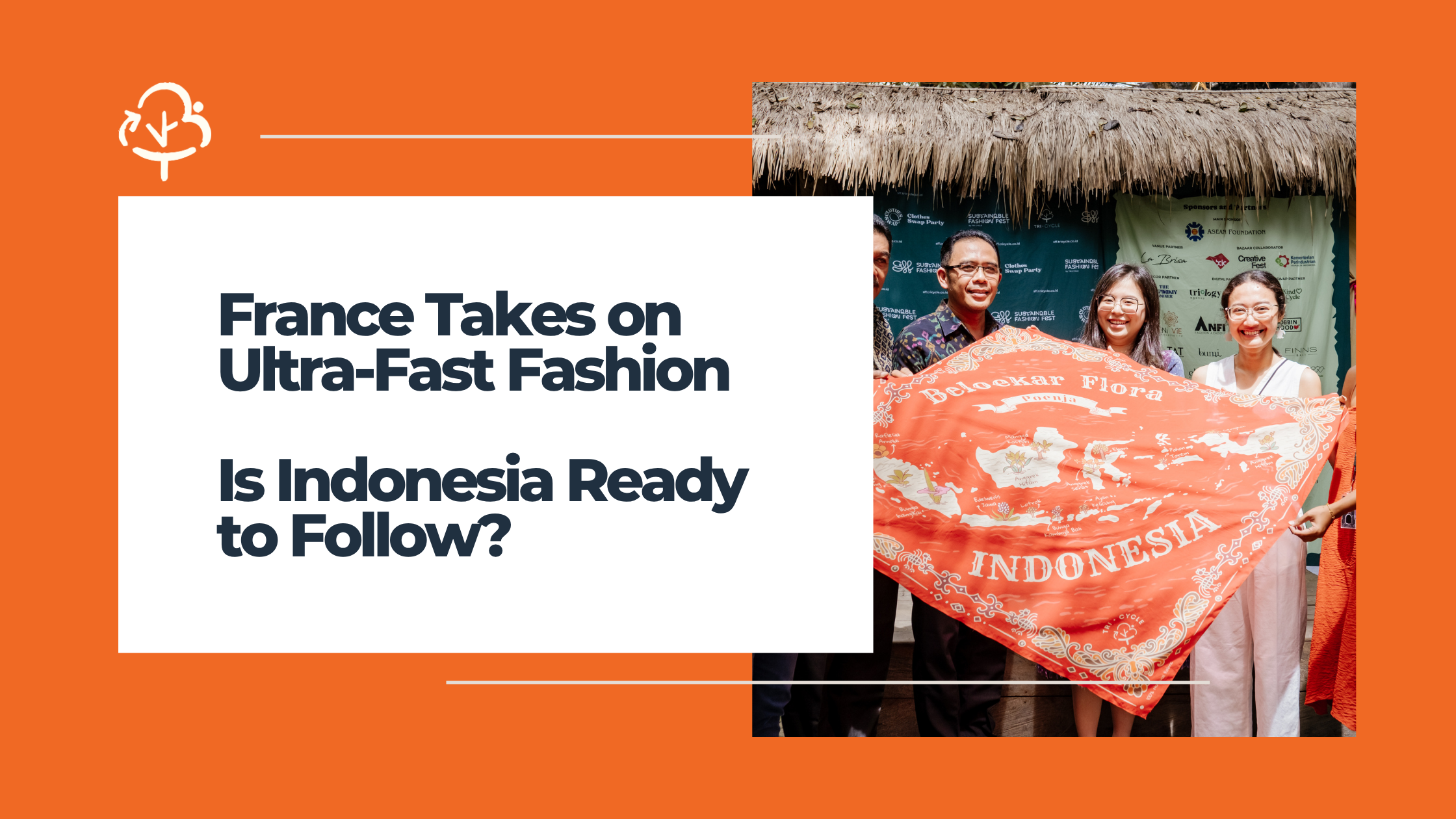
France Takes on Ultra-Fast Fashion: Is Indonesia Ready to Follow?
In June 2025, the fashion industry hit a turning point. The French Parliament passed the world’s first law specifically targeting ultra-fast fashion—a model made infamous by global giants like Shein and Temu.
The legislation is not just a political gesture; it’s a direct confrontation with a business model built on overproduction, environmental exploitation, and waste. As climate change accelerates, France is taking serious steps to hold the fashion industry accountable.
What Is Ultra-Fast Fashion?
Ultra-fast fashion refers to the hyper-accelerated model of producing and releasing hundreds or even thousands of new products daily. Companies like Shein are known to upload as many as 7,000 new styles per week—a staggering pace designed to maximize consumer turnover and impulse buying.
According to a 2024 sustainability report from Shein, their transportation-related emissions alone reached 8.52 million tons of CO₂e, a 13.7% increase from the previous year (Reuters, 2025).
In contrast, Inditex (Zara’s parent company), reported only 2.61 million tons of CO₂e from transport—illustrating the immense footprint of Shein’s operations.
What Does the French Law Include?
Passed by the French Senate in June 2025, the new bill aims to curb the environmental damage of ultra-fast fashion (Vogue Business). Key measures include:
- A €5 environmental penalty per item sold by ultra-fast fashion brands in 2025, rising to €10 by 2030.
- Advertising bans: Ultra-fast fashion companies will no longer be allowed to advertise across physical and digital platforms.
- Mandatory eco-score labels on each product, showing environmental impact across several metrics: carbon emissions, water use, recyclability, etc.
To be categorized as ultra-fast fashion, a brand must meet these criteria:
- At least 1,000 new product listings per day.
- Extremely low price points that encourage overconsumption.
- High turnover rate in collections and marketing cycles.
This law sends a clear message: sustainability is no longer optional.
Global Implications
France’s bold step is likely to ripple across other countries. Policymakers in Germany, the Netherlands, and Canada are reportedly observing the French model closely. If more nations follow suit, ultra-fast fashion’s dominance may face serious challenges.
At the same time, pressure on brands is mounting to shift toward circularity, transparency, and slower design cycles. In the luxury space, for instance, Chanel recently launched “Nevold”, a circular economy platform focused on upcycling and recycling its textile waste.
What About Indonesia?
Indonesia is both a massive consumer and manufacturer of fashion. Young people, especially Gen Z, are shopping online more than ever—often choosing Shein and similar brands for cheap, fast trends. However, there are no significant policies yet to regulate this influx, especially regarding sustainability.
Meanwhile, the environmental cost is rising. Indonesia produces over 2.3 million tons of textile waste annually, and most of it ends up in landfills or rivers, often mixed with imported second-hand clothing from abroad (Waste4Change, 2023).
If Indonesia were to follow France’s lead—through regulations like eco-labeling, environmental taxes, or restrictions on advertising—it could:
- Curb overconsumption among youth.
- Encourage local sustainable brands.
- Reduce pressure on the country’s growing waste problem.
What’s TRI Cycle Doing?
At TRI Cycle, we’re already building the future of fashion—one that doesn’t cost the Earth.
Through upcycling textile waste into bags, aprons, and other useful products, we’re:
- Preventing discarded fabrics from ending up in landfills.
- Providing communities with eco-friendly alternatives.
- Educating the public on circular fashion through swap events, repair corners, and workshops.
We believe that business can be both creative and responsible, and we’re proud to represent that in Indonesia.
Our Hope
France’s law is not just a government policy—it’s a wake-up call. It challenges all of us—brands, governments, and consumers—to rethink how we make, sell, and wear clothes.
We at TRI Cycle hope that Indonesia will rise to the occasion with greater awareness, stronger policies, and collective action toward a cleaner, more conscious fashion future.
Want to collaborate or create sustainable merchandise for your organization?
Let’s work together to rewrite the future of fashion. Contact TRI Cycle today!












